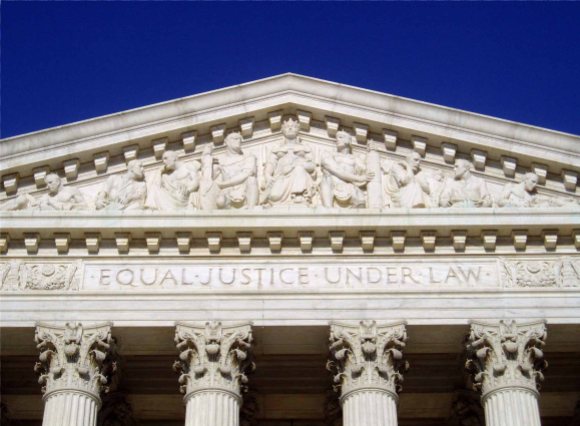
Update, 30 March 2018: Following further developments in these cases, on March 30, 2018, the Wikimedia Foundation joined over 110 other organizations and companies in signing onto an amicus brief in Trump v. Hawaii as it goes before the Supreme Court of the United States. Like previous briefs we have signed regarding this issue, it explains how these travel restrictions would affect the Foundation and the other signatories, and highlights the positive impact that international travel and exchange have had on operations. Additionally, it identifies legal issues with the way the restrictions were created and may be implemented.
———
Update, November 22, 2017: In September 2017, the U.S. administration issued a new executive order that supplanted previous attempts to restrict immigration into the United States. With the new order, ongoing litigation challenging the original executive orders became moot, so new lawsuits were filed: International Refugee Assistance Project v. Trump in the District of Maryland, and State of Hawaii v. Trump in the District of Hawaii. The Wikimedia Foundation joined over 95 organizations and companies in signing onto a new amicus brief filed in both cases. Similar to our filings opposing the previous executive orders, the new brief’s argument explains how restrictions on travel would impact the international operations of the Foundation and other signatories. Additionally, it describes legal problems with the order and its implementation. The brief was filed on November 17 in the Fourth Circuit case, and on November 22 in the Ninth Circuit.
———
Today, the Wikimedia Foundation joined a coalition of companies and organizations in filing an amicus curiae brief with the United States Supreme Court opposing an executive order that places restrictions on travel and immigration to the U.S. based upon national origin. Legal challenges to the order have been ongoing since it was issued earlier this year. Following injunctions against the order from the Courts of Appeal for the Fourth and Ninth Circuits, the US government petitioned the Supreme Court to review Trump v. International Refugee Assistance Project and Trump v. State of Hawaii. In opposing the order with this brief, the Foundation is joined by over 150 others, including Mozilla, Mapbox, and GitHub. The brief details how the order will disrupt the international operations of the Foundation and other signatories. Additionally, it explains how the order violates fundamental principles of US law.
At the Wikimedia Foundation, we understand that knowledge knows no borders. Our mission and purpose is to support the members of the Wikimedia communities who collect and disseminate information worldwide through the Wikimedia projects. By definition, this mission is global, and so is our organization. If we are unable to collaborate with each other across borders, our achievement of that mission is threatened. That is why we joined previous amicus briefs challenging this order, and will continue to oppose efforts to stifle international travel and collaboration.
Wikipedia and the other Wikimedia projects are the culmination of the efforts of thousands of volunteers whose work and perspectives are informed by their unique languages, histories and traditions. The Wikimedia movement consists of contributors, Foundation staff and contractors, board members, chapters, affiliates, and user groups in every corner of the globe. Constraints on international travel therefore present a serious threat to our collective work.
For more information about the importance of these issues, please see our February 6, 2017 and March 15, 2017 blog posts about previous amicus briefs opposing these restrictions, as well as the January 30, 2017 statement by our Executive Director Katherine Maher, which discusses our philosophy of making free knowledge globally available.
Restrictions on international travel and immigration not only go against the operational interests of the Wikimedia Foundation, but are also in opposition to the open collaboration that is crucial to the success of the projects and the sharing of free knowledge worldwide. We encourage the Court to affirm the judgments of the courts below.
Stephen LaPorte, Legal Director
Wikimedia Foundation
Special thanks to the law firm Mayer Brown for drafting the brief, to the other signatories of the brief for their collaboration and support in this matter, and to the Wikimedia Foundation Communications, Legal, Talent and Culture, and Travel teams for their work since the initial order was first issued.

Can you help us translate this article?
In order for this article to reach as many people as possible we would like your help. Can you translate this article to get the message out?
Start translation